Principal Investigator
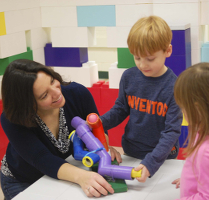
Elizabeth Bonawitz
My research bridges two research traditions: Cognitive Development and Computational Modeling. By bridging these methods, I hope to understand the structure of children's early causal beliefs, how evidence and prior beliefs interact to affect children's learning, the developmental processes that influence children's belief revision and curiosity, and the role of social factors (such as learning from others) in guiding learning. We are proud members of the Rutgers Newark Child Research Labs and close partners with the CoDaS (Computational Data Science) Group at RU-N.
Lab Managers
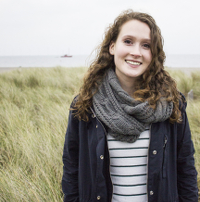
Elise Mahaffey
Elise is originally from Napa, California. She received her B.S. in child development with a minor in psychology from Cal Poly, San Luis Obispo in 2019. Her research interests lie broadly in social learning and social cognition, with an emphasis in the reciprocal, social nature of learning between adults and children. What role do adults play in children’s learning outcomes, as well as in their social-emotional learning and wellbeing? She has spent many years working with children in both formal and informal contexts, most recently as a preschool teacher at the Cal Poly Preschool Learning Lab. Ultimately, Elise hopes to attend graduate school to earn a PhD in developmental psychology.
Project Manager

Lauren Leotti
Lauren began her psychology research career in a developmental cognitive neuroscience lab at Georgetown University, working with Chandan Vaidya. In 2009, under the mentorship of Tor Wager, Lauren received her Ph.D. in psychology from Columbia University, and then completed a post-doc with Mauricio Delgado at Rutgers University. After having two children of her own, she has renewed personal interest in developmental psychology. Her research interests relate broadly to understanding learning, self regulation, and decision making, using behaviorial, psychophysiological and neuroimaging tools.
Post-doctoral Fellows
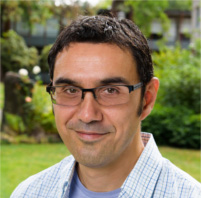
Igor Bascandziev
Igor is a postdoctoral fellow in the CoCoDev (Computational Cognitive Developmental) Group and the CoDaS (Computational Data Science) Group at Rutgers University – Newark. Igor earned his doctoral degree in Human Development and Education from the Harvard Graduate School of Education. After acquiring his degree, he taught Cognitive and Developmental Psychology at several liberal arts colleges and he was a postdoctoral fellow and a Mind Brain Behavior research associate at Harvard University. The overarching goal of his research program is to better understand the process of conceptual construction. How are highly abstract concepts like infinity, force, life, death, and many other concepts constructed over ontogenesis and over historical time? Personal Webpage.
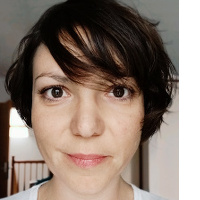
Katarina Begus
My main research interests are curiosity, information seeking, and learning in infancy. I have been investigating these topics in preverbal infants, mostly in the context of social learning, using behavioural, eyetracking, and neuroimaging approaches. After finishing my PhD at Birkbeck College, London, and first post-doc at Central European University, Budapest, I now work as a post-doctoral fellow with Dr. Elizabeth Bonawitz. I hope to expand on my prior work by integrating it with computational approaches and further investigating how infants' and young children's (monitoring of) uncertainty guides their information search and learning.

Jonathan Kominsky
Jonathan is a post-doctoral fellow in the CoCoDev group starting in
Summer 2019. He studies how the human mind understands cause and
effect: How we extract causal information from the world, how we
represent information about causal events and causal systems, how we
use causal information in our reasoning, and how all of these abilities
emerge and change over the lifespan. Jonathan got his B.A. in
Psychology from Reed College and Ph.D. in Developmental Psychology from
Yale University working with Frank Keil, Josh Knobe, and Brian Scholl.
He was most recently an NIH NRSA post-doctoral fellow at the Harvard
Lab for Developmental Studies working with Susan Carey, studying the
origins of causal representations in infancy. He also created PyHab, the first
open-source real time infant gaze-coding and stimulus presentation
software. Personal Webpage.
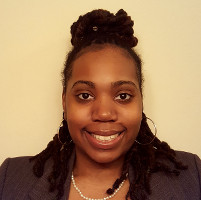
Kimele Persaud
My research interests center on understanding visual working and long-term memory. Specifically, I employ naturalistic and arbitrary stimuli to evaluate the contribution of knowledge and expectations for the statistical regularities of the environment to episodic memory. I also investigate whether differences in expectations, as a function of development, culture, and expertise, differentially influence the reconstruction of events from memory. I use Bayesian and computational methods to characterize this relationship. Personal Webpage

Jenny Wang
My research centers around the question: how do basic cognitive structures enable our learning of complex symbolic knowledge, such as language and math? I am broadly interested in the relationship between core cognition and symbolic knowledge, and what kind of beliefs people have about knowledge. I am excited to take a computational approach to characterize the process of conceptual change in young children and adults. Personal Webpage
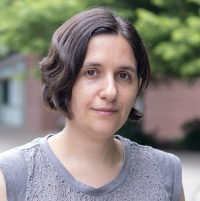
Libby Barak
I am a postdoctoral associate in the department of Mathematics and
Computer Science at Rutgers University - Newark and collaborating with
Dr. Bonawitz. I completed my M.Sc. at Bar-Ilan University working on
text classification and earned my Ph.D. from the University of Toronto
while working on models of verb acquisition. I then spent two years as
a post-doc in the Psychology department at Princeton University working
with Adele Goldberg exploring models of language learning.
My research interests are in the areas of cognitive modeling of
language and learning. My goal is to create computational models that
simulate plausible representations of the learner and the input by
accounting for theoretical findings from experimental observations on
human behavior. By using this modeling approach, I aim to clarify how
learning and linguistic factors interact to facilitate the rapid pace
of natural language learning and how learning may vary given individual
differences among learners.
Graduate Students

Lonnie Bass
Lonnie Bass graduated from Oberlin College in 2014 with a BA and high honors in Psychology. She is broadly interested in how children learn, specifically the factors and cognitive mechanisms that are involved in children’s evaluations of informants in informal pedagogical contexts. As Dr. Bonawitz's doctoral student, Lonnie hopes to utilize computational modeling techniques to investigate how young children distinguish good teachers from bad ones.
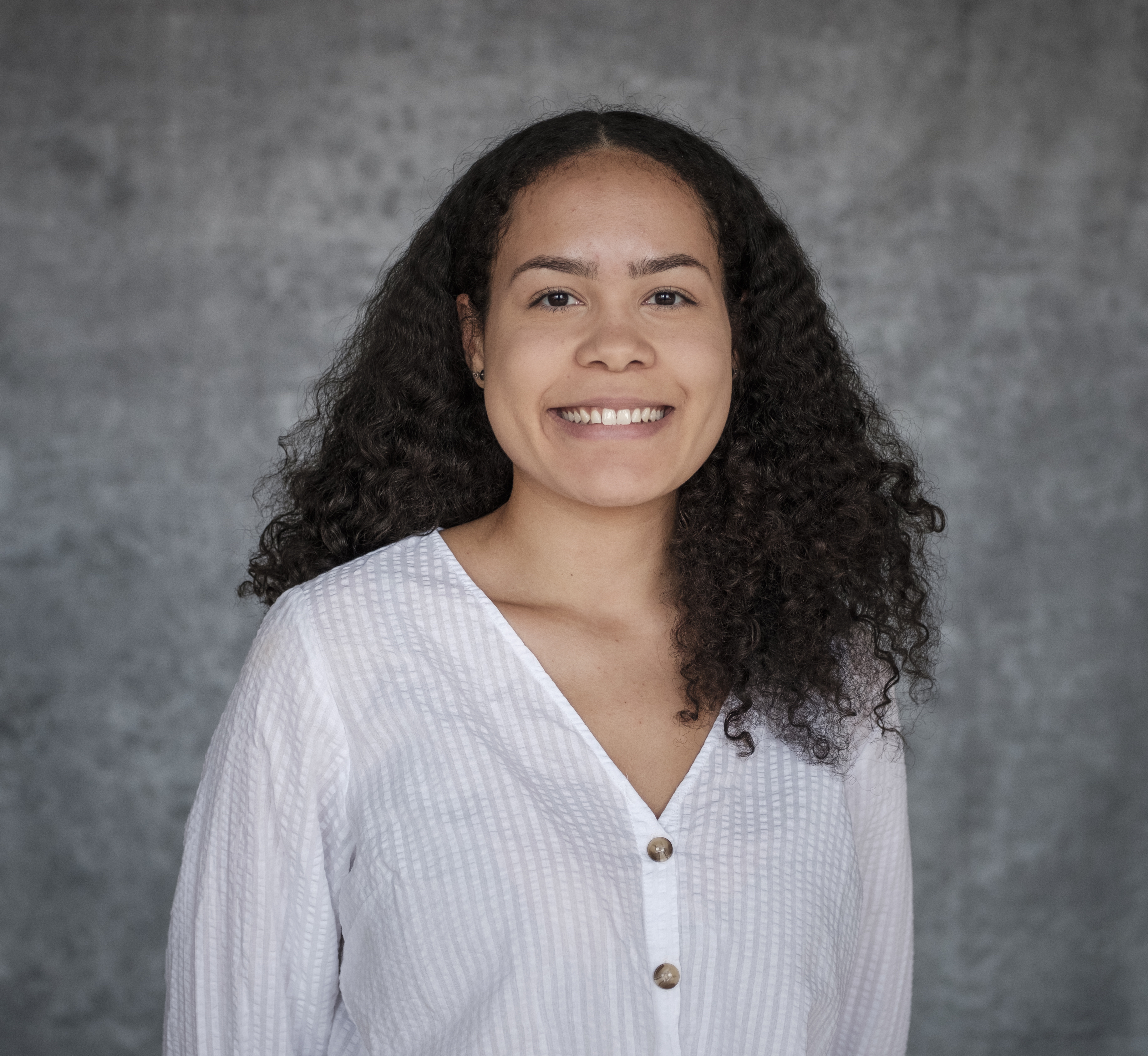
Carla Macias
Carla graduated from the University of Rochester with a BA in Brain and Cognitive Science in 2016. She is currently a 5th year Ph.D student in the Department of Psychology at Rutgers University-Newark. She is interested in cognitive development, particularly how children use their beliefs about the world to guide their attention and memory. In her current work, she is examining how belief-violating information impacts learning outcomes in both adults and children.
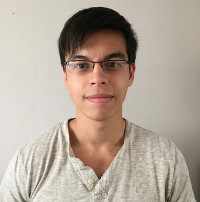
Joseph Colantonio
Joseph Colantonio received his BA in Applied Mathematics jointly from Rutgers University – Newark and NJIT in 2016, graduating Summa Cum Laude. He then participated in the PREP program at Rutgers – Newark as a post-Bachelor Research Technician. He is interested in decision making and learning across the lifespan, such as how various factors (i.e. socioeconomic status or emotions) may affect the way children learn through play and exploration. As a Graduate student, Joseph plans to use methods found in computational modeling and machine learning to bridge his research interests in psychology with his background in mathematics.
Post-bac Research Assistants & Masters students
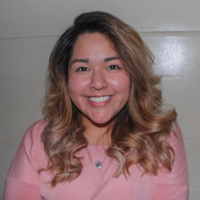
Milagros Grados
Milagros is a recent graduate from Rutgers-University-Newark. Her research interests are in decision making, feedback expectancy and the effect it has on learning. Moreover, she is interested in abnormal aspects of child development, especially childhood anxiety disorders, and child/adolescent mental health.
Postdoctoral Associates Alumni

Emily Daubert
Emily is a postdoctoral fellow at Rutgers University - Newark in the Computational Cognitive Development Lab in the Psychology Department and also in the Cognitive and Data Science Lab.She received her PhD while working with Dr. Geetha Ramani at the University of Maryland, College Park and her BA in developmental psychology from Temple University. Her research interests center on how children learn through play. Specifically, she is interested in the role of questioning in playful settings for improving STEM learning outcomes and how individual differences, such as socioeconomic and dual-language- learner status influence how children learn through play. Emily is now an facult at the Department of Psychology at the University of Hawaiʻi at Mānoa. Webpage.
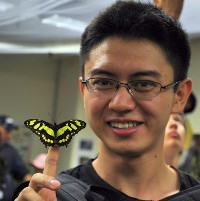
Yue Yu
Originally from Shanghai, China, Yue received his PhD in developmental psychology from Cornell University, advised by Prof. Tamar Kushnir. Yue's research focuses on understanding children’s learning in a social environment. Using experimental, observational and computational methods, he explores how children infer from social and contextual cues to guide their learning and exploration, and how these inferences are shaped by everyday experiences. His research in CoCoDev Lab mainly focuses on the effect of "pedagogical questions", a type of questions commonly used by teachers and parents to help children learn. Other work also explore topics of (over-)imitation, causal learning, and category learning. Yue is now a research scientist/faculty in the National Institute of Education of Singapore.Personal Webpage

Yang Yang
Yang is originally from Beijing, China. She received her Bachelor of Medicine and Bachelor of Science in psychology from Peking University in China, her Master of Education from Harvard University, and her PhD from Cornell University. She is interested in children’s cognitive and emotional development in different cultural contexts. Her graduate work has focused on the developmental patterns, the antecedents, and the consequences of children’s emotional understanding. As a postdoctoral associate in CoCoDev lab, she is interested in using computational tools to investigate children's emotion and learning. Yang is now a research scientist/faculty in the National Institute of Education of Singapore.
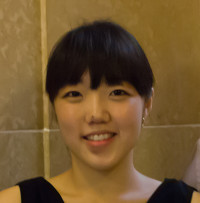
Koeun Choi
I study cognitive development in the context of media technology. My work uses experimental designs, individual difference measures, eye-tracking methodologies, and statistical techniques to understand the cognitive processes and mechanisms involved in children’s learning and transfer from media. Much of my work focuses on the impact of new technology such as interactive touch screens on children’s exploration and learning in multiple domains (e.g., STEM). I am particularly interested in understanding whether and how digital media would provide benefits in delivering educational content to young learners. Koeun is now a faculty at Virginia Tech University.Personal Webpage

Lewis Baker
Lewis received his BS from Loyola University New Orleans and his PhD
in Psychology from Vanderbilt University. His research spans
developmental, computational and vision science methods to investigate
selective attention in social events. One line of inquiry explores
joint attention, the ability of adults and children to rapidly attend
to where another person can see. Another attempts to predict episodic
memories from the structure of events. Lewis worked on a
new NSF-funded initiative investigating children's learning through
discovery, in a collaboration between Elizabeth Bonawitz, Vanessa LoBue
and Pat Shafto. He is now the Director of Data Science at pymetrics.
Lab Manager Alum

Elizabeth Lapidow
Liz Lapidow graduated from Sarah Lawrence College in 2014, and has
been working with Professor Bonawitz since January 2015. She is
particularly interested in learning by exploration, and how agents
learn and reason about causal relationships. Liz is now a graduate
student at UCSD working with Caren Walker.

Zachary Walden
Zach Walden graduated from Franklin & Marshall College in 2016 with a B.A. in Psychology. His interests lie in children’s emotion regulation abilities, reactions to emotionally valenced stimuli, and
how early life experiences may precipitate and predict later
behaviors.
Zach is pursuing a Psy.D. at La Salle University beginning Fall of 2019.

Trisha Dehrone
Very broadly, my research interests center around mitigating the
negative effects of group based inequality and conflict. In future
work, I am
interested in investigating how Whites respond to increasing diversity
and justify prejudice, inequality, and violence. I strive to conduct
research with practical implications by designing and implementing
interventions that use psychological theories and methods to make more
equitable and cooperative environments to improve outcomes for members
of stigmatized groups. Trisha is an NSF
Graduate Research Fellowship recipient pursuing a PhD at UMass with
Prof. Linda Tropp beginning Fall of 2019.

Jack Fredricks
Jack is a recent graduate from Rutgers University – Newark with a major in Psychology. He completed his Honors Thesis in Dr. Bonawitz’s lab in 2016. His interests and current projects concern feedback expectancy and the effect it on has on learning.
